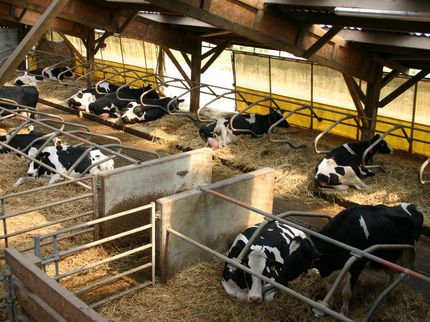UN says dairy a potential ally in Asia nutrition challenges
An apple a day kept the doctor away - but now in Asia, a cup of milk might do the trick.
Milk and other dairy products have become an unexpected ally in the fight against Asia's newest dietary challenges: obesity, and vitamin and mineral deficiencies, according to a report by the U.N. Food and Agriculture Organization released Tuesday.
"This report is an eye-opener and a wake-up call ... we still have nearly half-a-billion hungry people in this region," said Kundhavi Kadiresan, FAO's assistant director general. But "increased consumption of milk and dairy holds out excellent promise to improve nutrition," he said.
With greater political stability and mechanized farming, Asia has made clear strides in taming famine and hunger. In the past 25 years, undernourishment rates halved in Asia from 24.3 percent to 12.3 percent, satisfying one of the UN's Millennium Development Goals.
As people move from the countryside to the big city by the millions, diets are changing from more traditional ones dominated by rice to a more varied, Westernized version incorporating more fruits, vegetables, and meats: Calories from starches declined by 50 calories per person a day while calories from fruits, vegetables, and meat increased by over 300 calories per person a day.
But like citizens of the West, people in Asia are exercising less and chowing down more on heavily processed foods filled with sugar and fat. This means many still aren't getting enough nutrients like zinc, iron, or vitamin A; and obesity levels are skyrocketing, rising more than 4 percent a year.
On top of still-persistent undernourishment in South Asian countries such as Afghanistan, Nepal, and Bangladesh, only seven out of 19 developing Asian countries are now on track to reach the UN FAO's bold goal of "zero hunger".
However, changing tastes for food means Asians are drinking more milk, traditionally absent from many Asian kitchens but which now flies off the shelves from Bangkok to Beijing. Production has almost tripled, from about 110 million tons in 1990 to nearly 300 million tons in 2013 - accounting for more than 80 percent of the world's increase in milk supplies during that time.
Nutritious and cheap, the dairy boom has encouraged governments to bring cartons to classrooms. Studies have found Thailand's National Milk Program, which brings milk to schools, causes students to grow taller and take in more protein and calcium. Similar programs were rolled out from India to China to the Philippines.
The main beneficiaries have been small farmers, who produce nearly 80 percent of the milk in Asia, because of low costs and a more equal distribution of cows and goats - in contrast to farmland, which can be dominated by big landowners. In Thailand, the top 1 percent owns nearly a quarter of Thai land, and the top 10 percent nearly two thirds.
The result is that the dairy industry is a potential "engine of poverty-alleviating growth", as the report puts it - so long as things remain egalitarian.
"Policy-makers need to ensure that the region's small-holder dairy farmers - the largest segment of dairy producers - can have fair access to, and compete in, the marketplace," Kadiresan said.
More dairy cattle also means more manure, a potential threat to water supplies - meaning good policy is needed in the decades ahead, says FAO officials.
"We will, collectively, need to put our money where our mouths are to ensure we can meet these twin challenges," Kadiresan said.(dpa)
Most read news
Other news from the department business & finance

Get the food & beverage industry in your inbox
By submitting this form you agree that LUMITOS AG will send you the newsletter(s) selected above by email. Your data will not be passed on to third parties. Your data will be stored and processed in accordance with our data protection regulations. LUMITOS may contact you by email for the purpose of advertising or market and opinion surveys. You can revoke your consent at any time without giving reasons to LUMITOS AG, Ernst-Augustin-Str. 2, 12489 Berlin, Germany or by e-mail at revoke@lumitos.com with effect for the future. In addition, each email contains a link to unsubscribe from the corresponding newsletter.






























































